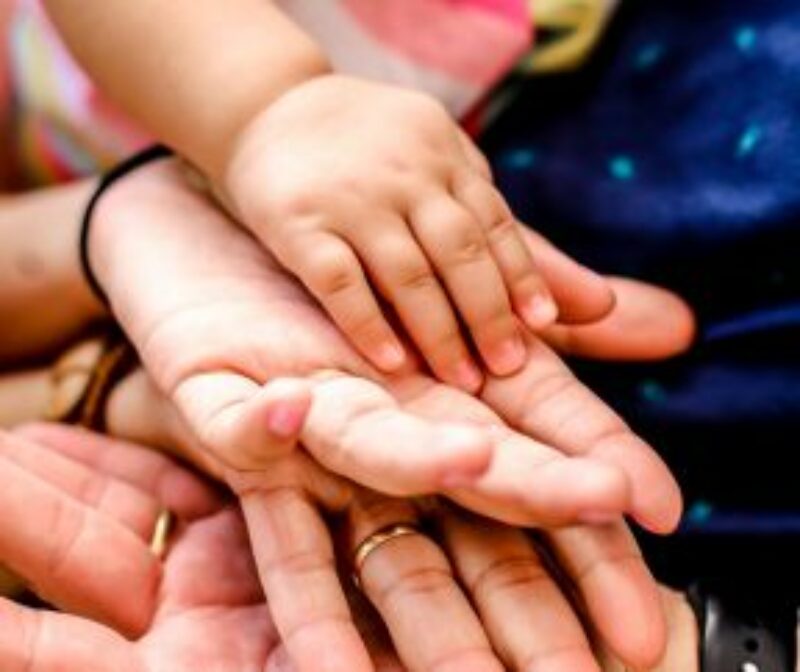Topic Archive
Youth
Youth

Research Project
Adolescent Spirituality and Thriving
Dr. King and her research team continue to explore psychological aspects of spiritual development and the potential psychological resources within religion and spirituality that promote thriving for young people.
Youth

Research Link
“We are Protected”: Examining youth perceptions of safety
“We are Protected”: Examining youth perceptions of safety within a faith-based positive a faith-based positive youth development program in El Salvador / Journal of Youth Development
Thriving

Episode
How to Navigate Life: Psychological Tools to Find Your Purpose with Dr. Belle Liang
Are you looking for a sense of purpose? Does it feel like you’ve lost your way? Purpose is a vital part of our spiritual health. We know we need it, but for some of us, it can be so hard to find. Psychologist Belle Liang helps us navigate and thrive holistically through an understanding of our own journey and the stories that shape us. She names four essential elements of purpose: (1) character strengths, (2) skills and expertise, (3) deeply held values, and (4) a sense of contribution to the world. Includes a real-time practical exercise for aligning with our...
Youth

Post
Kids and Community (Part 3): How Can We Keep Kids in Church?
How do we keep young people engaged in church? This is part 3 of a 3-part series.
Youth

Post
Kids and Community (Part 2): Adolescents and the Value of Loving Relationships that Display a Loving God
Why do kids need a community that models love, and what does emotional safety have to do with it. Part 2 of a 3-part series.
Youth

Post
Kids and Community (Part 1): How to Find the Right One for Your Kids to Thrive
How do you find a community to support your family? What kinds of support help families grow spiritually healthy and thrive.
Youth

Post
Adolescents and Spirituality: Do Mountaintop Spiritual Experiences Really Make a Difference?
A Thrive Scholars Fellow shares transcendent experiences along with caring adults can stimulate spirituality and virtue development in youth.
Wellbeing

Research Link
Religious involvement in adolescence
Citation Vaughn, J. M., & King, P. E. (2024). Religious involvement. In Encyclopedia of Adolescence (pp. 411–421). Elsevier. https://doi.org/10.1016/B978-0-323-96023-6.00002-6 Abstract Religion and spirituality are well-established contributors to adolescent well-being and development. Though efforts to identify the specific manners through which they may influence adolescents are ongoing, involvement in a religious congregation or community appears particularly beneficial. Religious involvement, which can take many forms, offers adolescents increased access to an abundance of resources – social, ideological, and transcendent. Accordingly, after describing trends in adolescent religiosity and religious involvement, we unpack what it means for an adolescent to be involved in their...
Spirituality

Post
Adolescents and Spirituality: How Transcendent Experiences can Create Resilient Teens
Research with Compassion International yielded results explaining the assets that come from spirituality across countries and challenges.
Thriving

Research Link
Hindsight in the 2020’s: Looking back and forward to positive youth development and thriving
Citation King, P. E., & Mangan, S. (2023). Hindsight in the 2020s: Looking back and forward to positive youth development and thriving. In L. J. Crockett, G. Carlo, & J. E. Schulenberg (Eds.), APA handbook of adolescent and young adult development (pp. 609–627). American Psychological Association. Abstract Positive youth development (PYD) started as a field of practice before it became a field of study. With a heightened awareness of the necessity of a framework for the thriving of all youth and all societies, the chapter considers the purpose of PYD and consequently revisits the concept of teleology, offering a revised understanding...
Youth

Research Link
Measuring Youth Perceptions of Being Known and Loved and Positive Youth Development: Cross-National Findings from Rwanda and El Salvador
Citation Tirrell, J. M., Dowling, E. M., Kibbedi, P., Namurinda, E., Iraheta, G., Dennis, J., Malvese, K., Abbasi-Asl, R., Williams, K., Lerner, J. V., King, P. E., Sim, A. T. R., & Lerner, R. M. (2023). Measuring Youth Perceptions of Being Known and Loved and Positive Youth Development: Cross-National Findings from Rwanda and El Salvador. Child & Youth Care Forum, 52(5), 1093–1119. https://doi.org/10.1007/s10566-022-09725-6 Abstract Background Dynamic, relational developmental systems-based models of development emphasize that developmentally-nurturant youth-adult relationships elicit in youth perceptions of being known and loved. Although such perceptions are foundations of positive youth development (PYD), such measures do not...
Hope

Research Link
Agentic and Receptive Hope: Understanding Hope in the Context of Religiousness and Spirituality through the Narratives of Salvadoran Youth
Citation Vaughn, J. M., King, P. E., Mangan, S., Noe, S., Hay, S., O’neil, B., … & Sim, A. T. R. (2022). Agentic and receptive hope: Understanding hope in the context of religiousness and spirituality through the narratives of Salvadoran youth. Religions, 13(4), 376. Abstract Hope contributes to positive development in adolescents, and religious and spiritual contexts may be particularly important for developing and supporting hope. However, extant literature on hope, religion, and spirituality neglects their synergistic relation, leaving questions about how they work together to support development. In this study, we explore how religiousness and spirituality (R/S) inform hope...